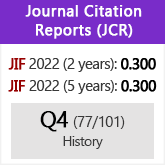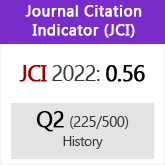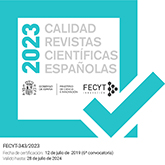Mobilizations and divisions of the scientific community in wartime
DOI:
https://doi.org/10.3989/chdj.2014.008Keywords:
science, university, French Revolution, First World War, Second World War, Carnot, Fritz Haber, Robert OppenheimerAbstract
This paper has a triple objective. On the one hand, it pretends to give an overview of the links between science, war and university during three key moments of contemporary history: the French Revolution, the Great War and the Second World War. Furthermore special attention is paid to the mobilization of actors, to changes in the organizational processes of science and to the creation of technical artifacts in each of the above warmongers situations. Thirdly we consider the fact that the scientific community tends to split at critical junctures. During the French Revolution the revolutionary messianism politicized science and it divided scientists within their country. A century later, in the early twentieth century, the nationalist messianism dominated the political scene. This messianism raised controversy among scientists, not only within their respective states, but also between the various states of the international community.
Downloads
References
Becker, Annette (2000) "Guerre totale et troubles mentaux". Annales, 55, 1: 135-151. http://dx.doi.org/10.3406/ahess.2000.279836
Bermejo Castrillo, Manuel Ángel (2008) "La Universidad europea entre Ilustración y liberalismo. Eclosión y difusión del modelo alemán y evolución de otros sistemas nacionales". En Filosofía para la Universidad, filosofía contra la Universidad (de Kant a Nietzsche), editor Oncina Coves, Faustino. Editorial Dykinson-Universidad Carlos III. Madrid: 49-165.
Cornwell, John (2005) Los científicos de Hitler. Ciencia, guerra y el pacto con el diablo. Paidós, Barcelona.
Darmon, Pierre (2001) "Des suppliciés oubliés de la Grande Guerre: les pithiatiques". Histoire, économie et société, nº 1: 49-64. http://dx.doi.org/10.3406/hes.2001.2253
Delaporte, Sophie (2004) "Discours médical et simulation". En Vrai et faux dans la Grande Guerre, eds. Prochasson, Christophe y Rasmussen Anne. La Découverte, Paris: 218-233.
Dhombres, Nicole (1988) Les savants et la revolution. Cité des Sciences et de l'Industrie, Paris.
Dhombres, Nicole y Jean (1989) Naissance d'un nouveau pouvoir: sciences et savants en France (1793-1824). Payot, Paris.
Dhombres, Jean y Nicole (1997) Lazare Carnot. Fayard, Paris.
Fayet, Joseph (1960) La Révolution française et la Science. Librairie Marcel Rivière, Paris.
Forman, Paul y Sánchez Ron, José Manuel (eds.), (1996) National Military Establishments and the Advancement of Science and Technology: Studies in Twentieth Century History, Kluwer Academic Publishers, Dordrecht. http://dx.doi.org/10.1007/978-94-011-0671-9
Gillispie, Charles C. (1992) "Science and Secret Weapons Development in Revolutionary France, 1794-1804: A Documentary History". Historical Studies in the Physical and Biological Sciences, 23: 35-152. http://dx.doi.org/10.2307/27757692
Krige, John y Pestre, Dominique (eds.), (1997) Science in the twentieth century, Harwood Academic Publishers, Amsterdam.
Lafuente, Antonio (2003) "La movilización de la ciencia". Quark, nº 28-29, 12 p.
Latour, Bruno (1991) "Joliot: punto de encuentro de la historia y de la física". En Historia de las Ciencias, ed. Serres, Michel. Ediciones Cátedra, Madrid: 553-573.
Le Naour, Jean-Yves (2011) Les soldats de la honte. Perrin, Paris.
Pestre, Dominique (2005) Ciencia, dinero y política. Traducido por Ricardo Figueira. Ediciones Nueva Visión, Buenos Aires.
Ramón y Cajal, Santiago (2006) Recuerdos de mi vida, edición de Juan Fernández Santarén. Crítica, Fundación Iberdrola. Barcelona (1ª ed. 1917).
Salomon, Jean-Jacques (1974) Ciencia y política. Siglo XXI editores, México
Salomon, Jean-Jacques (1989) Science, guerre et paix, Economica, Paris.
Sánchez Ron, José Manuel (2007) El poder de la ciencia: historia social, política y económica de la ciencia (siglos XIX y XX). Crítica, Barcelona.
Schroeder-Gudehus, Brigitte (1978) Les scientifiques et la paix: la communauté scientifique internationale au cours des années 20. Presses de l'Université de Montreal, Montreal. En 2014 se ha reimpreso en formato PDF: http://www.pum.umontreal.ca/files/prod/livres_fichiers/Scientifiques-et-la-paix.pdf
Serres, Michel (1991) "Paris 1800". En Historia de las Ciencias, ed. Serres, Michel. Ediciones Cátedra, Madrid: 381-409.
Stern, Fritz (2003) "Juntos y separados: Fritz Haber y Albert Einstein". En El mundo alemán de Einstein, ed. Stern, Fritz. Paidós, Barcelona: 71-175.
Wellerstein, Alex (2008) "Patenting the bomb: Nuclear weapons, intellectual property and technological control". Isis, 99: 57-87. doi: 10.1086/587556. http://dx.doi.org/10.1086/587556
Wellerstein, Alex (2014) "Restricted Data: The Nuclear Secrecy Blog" (http://blog.nuclearsecrecy.com)
Published
How to Cite
Issue
Section
License
Copyright (c) 2014 Consejo Superior de Investigaciones Científicas (CSIC)

This work is licensed under a Creative Commons Attribution 4.0 International License.
© CSIC. Manuscripts published in both the printed and online versions of this Journal are the property of Consejo Superior de Investigaciones Científicas, and quoting this source is a requirement for any partial or full reproduction.All contents of this electronic edition, except where otherwise noted, are distributed under a “Creative Commons Attribution 4.0 International” (CC BY 4.0) License. You may read here the basic information and the legal text of the license. The indication of the CC BY 4.0 License must be expressly stated in this way when necessary.
Self-archiving in repositories, personal webpages or similar, of any version other than the published by the Editor, is not allowed.

















